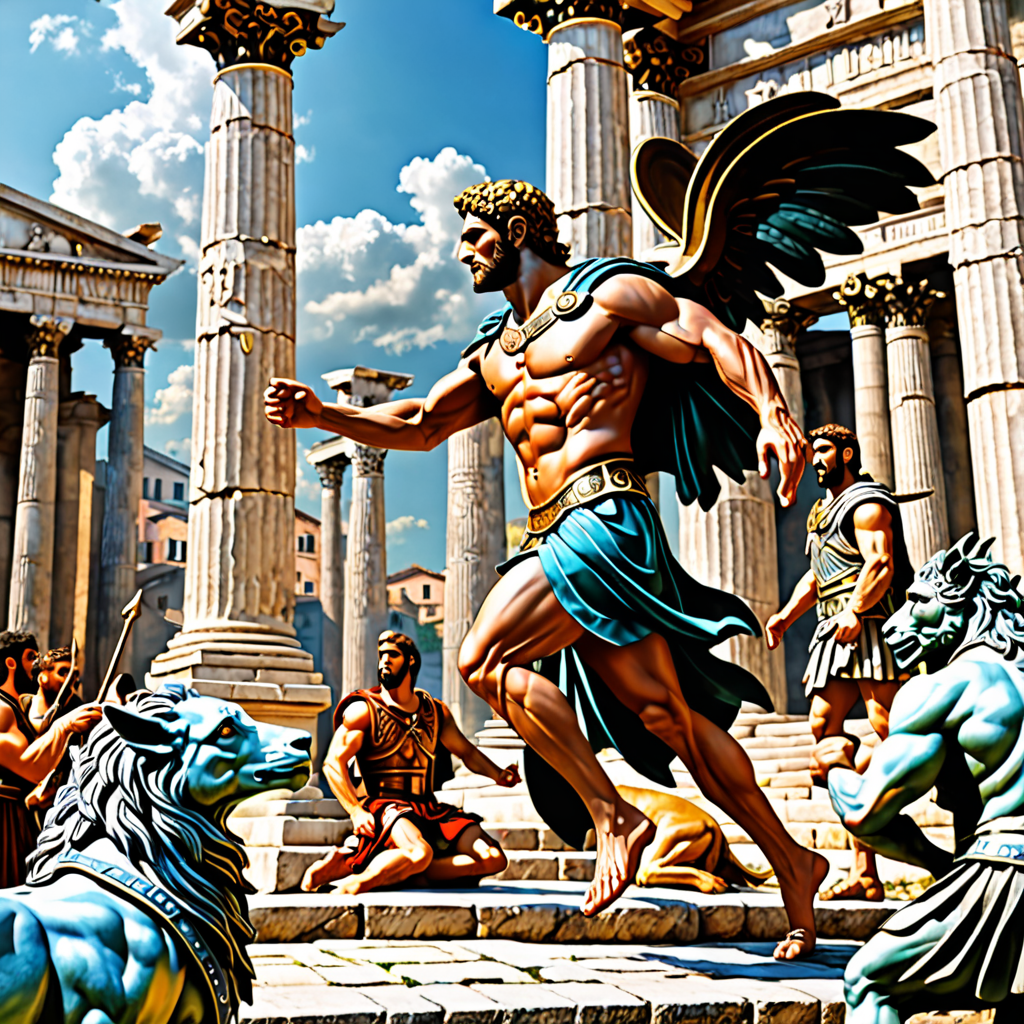The Myth of Creation: What Ancient Stories Reveal About Us
1. Introduction to Creation Myths
Creation myths are fundamental narratives that explain the origins of the world, humanity, and the cosmos. These stories are significant as they provide insight into the beliefs, values, and cultural practices of various societies. Creation myths serve not only as a means of understanding the universe but also as a way to communicate societal norms and moral lessons.
Across diverse cultures, creation myths have played a crucial role in shaping worldviews. They often embody the cultural heritage of a community, reflecting their history, environment, and existential concerns. By studying these myths, we can gain a deeper appreciation for the human experience and the universal questions that bind us together.
2. Common Themes in Creation Stories
Many creation myths share common themes that reveal the dualities and complexities of existence:
- Chaos versus order: A frequent motif is the struggle between chaos and order, where creation emerges from a primordial void or disorder.
- The role of gods and supernatural beings: Most myths feature divine characters who initiate creation, often depicting their motivations, conflicts, and relationships.
- Nature and the environment: Creation narratives frequently emphasize the connection between humans and the natural world, highlighting the interdependence of all living things.
3. Comparative Analysis of Creation Myths
Numerous creation myths exist, each unique to its cultural context. Here are a few notable examples:
- Genesis: The Judeo-Christian creation story describes God creating the world in six days, culminating in the creation of humanity in His image.
- Enuma Elish: This Babylonian myth presents a narrative of conflict among gods, leading to the creation of the world from the body of the slain goddess Tiamat.
- Popol Vuh: The Mayan creation story recounts the gods’ attempts to create humans from maize, illustrating the significance of agriculture in their culture.
While these myths differ in details and characters, they share overarching themes such as the emergence of order from chaos and the divine crafting of humanity. These similarities highlight the shared human experience across cultures, while the differences reflect unique historical and social contexts.
4. The Psychological and Sociological Impact of Creation Myths
Creation myths play a pivotal role in shaping human identity and understanding of existence. They provide frameworks for individuals and societies to make sense of their place in the universe:
- Understanding human existence: By framing our origins, these myths help us confront existential questions about life, purpose, and mortality.
- Cultural values and norms: Creation stories often convey moral lessons and values, guiding societies in their ethical conduct and social organization.
5. Creation Myths as Reflections of Human Experience
Creation stories often mirror human struggles, aspirations, and the quest for meaning. They encapsulate themes of:
- Conflict: Many myths depict struggles that resonate with human experiences of conflict, whether internal or external.
- Hope and renewal: Creation narratives often emphasize themes of renewal and hope, reflecting humanity’s resilience and desire for a better future.
These stories serve as a canvas on which the complexities of the human experience are painted, addressing modern existential questions that continue to challenge us today.
6. The Influence of Creation Myths on Religion and Spirituality
Creation myths are deeply intertwined with religious beliefs, often forming the foundation of spiritual practices and rituals. They influence:
- Religious narratives: Many religions use creation myths to explain their beliefs about the divine and the nature of existence.
- Spiritual practices: Rituals may be designed to honor the creation story, reinforcing communal bonds and shared identity.
7. The Evolution of Creation Myths in Contemporary Society
In modern times, perspectives on creation myths have evolved. New interpretations arise as:
- Scientific discourse: The advent of scientific explanations for the origins of the universe and life has led to reinterpretations of ancient stories.
- Modern narratives: Contemporary creation myths may emerge, reflecting current societal challenges and technological advancements.
The relevance of these myths persists as they adapt to the changing landscape of human understanding.
8. Creation Myths and Environmental Consciousness
Creation myths often depict the relationship between humanity and nature, providing lessons for contemporary environmental issues. They encourage:
- Respect for the environment: Many myths emphasize the sacredness of nature, urging societies to live in harmony with their surroundings.
- Responsibility: These stories can instill a sense of responsibility towards the earth, highlighting the consequences of exploitation.
9. The Future of Creation Myths in a Globalized World
As cultures interact in a globalized world, the blending of creation narratives is becoming increasingly common. This process may result in:
- New cultural narratives: Contemporary societies may create new myths that address modern challenges, such as climate change and technological advancement.
- Shared understanding: The globalization of creation stories can foster a greater understanding of diverse perspectives and promote unity.
10. Conclusion: The Enduring Legacy of Creation Myths
In summary, the study of creation myths offers profound insights into the human experience. These narratives not only reflect our origins but also shape our beliefs, values, and identity. They remind us of our shared humanity and the universal questions that persist across time and cultures.
As we navigate our place in the cosmos, the enduring legacy of creation myths continues to resonate, guiding us in our quest for understanding ourselves and our relationship with the universe.


